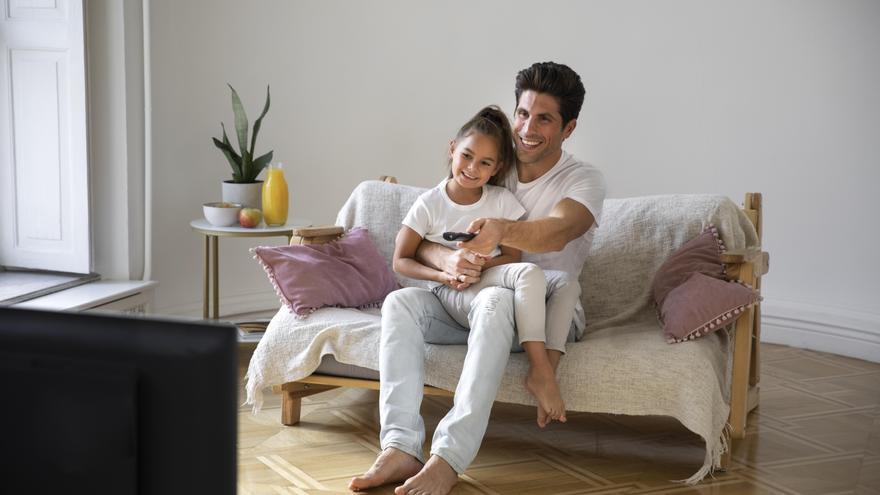Christmas is a perfect time to spend time together as a family. But it is also true that, given the situation of the pandemic, the cold that prevents making some plans outdoors or for whatever reasons, it is likely that we spend a lot of time at home, which can lead us to make a abusive use of screens.
Therefore, it is great that we plan movies or series as a family, but the ideal would be to combine it with other types of activities to avoid bingeing on television at Christmas. For this, it is important that we take into account the following keys:
The effect of screens on children’s brains
Technological devices offer a large number of stimuli (lights, sound, movement …) to the human brain. Is overstimulation can be very harmful, because as Catherine L’Ecuyer, author of the bestsellers “Educate in wonder” and “Educate in reality” explains, prolonged exposure to rapid changes in images during the first years of life would condition the mind to levels of higher stimuli, which would lead to a lack of attention later in life. In fact, underlines L’Ecuyer, a study points out that “for every daily hour of screen consumption before the age of three, there is a 10% more likely to be inattentive with you are “.
The opportunity cost of screens
On the other hand, it is important that we bear in mind that the abuse of screens is not only harmful because of the consequences it causes in the brain, but also because when we are using them, we stop making other plans. In other words, the time we spend with our mobile phones is wasting a fantastic opportunity to be doing other things: family games, taking a walk in nature, reading a book …
“The use of screens displaces other alternatives that have been shown to have very clear benefits at the psychosocial level”
As the psychologist Alberto Soler explains, “the fact of being in front of a screen occupies a time that otherwise could have been used in other much more important things and with a much clearer benefit for our children: reading, running, playing with friends, develop a hobby, be in contact with nature. Is what is called opportunity cost. It is not that the media are so bad in themselves, but that their use displaces other alternatives that have been shown to have benefits very clear on a psychosocial level ”.
How to prevent our children from abusing technology (and we too)
Knowing all this, it is time to get to work so that this Christmas no member of the family ends up full of screens. Some tips that we can start to put into practice are:
- Set an example: As we always say, boys and girls do not learn from what we say they have to do, they learn from us. We are your main referencesSo if they see that we prioritize checking mobile notifications before talking with them, watching a series before making plans together or answering emails over dinner, what do we hope they learn?
- Instead of prohibiting, propose alternatives: many times we focus too much on prohibiting and giving orders, which in a great majority of cases leads to arguments, conflicts and anger between family members. And the worst of all is that it is very likely that in the end they will not even listen to us. So what if instead of prohibiting we propose alternatives and let them decide? Let’s try avoid orders and propose plans from which they can choose. In this way, we will not only be moving them away from the screens, but we will also be giving them some autonomy and sending the message that we trust their criteria.
- Rules and limits: Do not prohibit does not mean to allow them to use the technologies without any type of control or limit. We must establish rules, which our children know, and be firm with them (that is, if we set rules they are for the compliance of the whole family, not to comply with them or not depending on our state of mind).
- Make plans according to your interests: many times we fall into the error of making plans that interest us and that, on the other hand, our children do not feel like it at all. And it is that sometimes we do not stop to listen to what their interests are or what they want to do, believing that because we are adults we have the right to decide everything. For this reason, we suggest that you stop to think and ask them what they want to do or what they would like to visit.
– .


